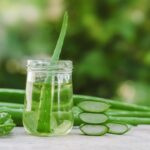How to Get Rid of Bad Breath: Causes, Remedies, and Prevention
Before delve into “how to treat bad breath”, bad breath, also known as halitosis, can be an embarrassing and frustrating problem. It can stem from poor dental hygiene, certain foods, or underlying health conditions.
While maintaining good oral care is essential, some foods—like parsley and pineapple—may also help neutralize odors caused by bacteria in the mouth.
If your bad breath is due to an underlying health condition such as acid reflux, dry mouth, or sinus infections, treating the root cause may be the best solution.
Do You Actually Have Bad Breath? How to Tell
It’s surprisingly difficult to smell your own breath accurately. Some people believe they have bad breath when they don’t, while others unknowingly suffer from chronic halitosis.
🔹 How to Check: Ask someone you trust—perhaps a close friend or family member—for an honest opinion about your breath. Ideally, do this midday (not right after eating a garlic-laden meal).
🔹 DIY Breath Test: Lick the inside of your wrist, wait a few seconds for the saliva to dry, then sniff. If the odor is unpleasant, your breath likely needs freshening.
If you confirm that your breath has an issue, don’t panic! There are plenty of home remedies and lifestyle changes that can help.
What Causes Bad Breath? Understanding Its Origins and Solutions
Bad breath, also known as halitosis, is a common yet frustrating issue that can stem from various sources. While it most often originates in the mouth, certain medical conditions and dietary habits can also contribute to unpleasant breath. Let’s take a closer look at where bad breath comes from and how to prevent it.
How Bad Breath Develops in the Mouth
The primary culprit behind bad breath is bacteria. Your mouth is home to millions of bacteria, some of which break down leftover food particles and release foul-smelling sulfur compounds in the process.
Poor Dental Hygiene: The Leading Cause
If you don’t brush and floss regularly, bacteria thrive on food debris left behind, forming a thin film called plaque on your teeth. When plaque isn’t removed at least twice a day, it can:
✔ Produce an unpleasant odor
✔ Lead to tooth decay and gum disease
✔ Cause persistent bad breath
To maintain fresh breath, follow proper oral hygiene practices by brushing twice daily, flossing, and using an antibacterial mouthwash.
Foods That Contribute to Bad Breath
While all foods can get trapped between your teeth, some have stronger effects on your breath.
Sulfur-Containing Foods
🧄 Garlic & Onions – These foods contain sulfur compounds that linger in your mouth. But that’s not all—they enter your bloodstream after digestion and are released through your lungs, making your breath smell bad even hours after eating.
High-Protein & Low-Carb Diets
🥩 Keto Diet & Other Low-Carb Diets – When your body enters ketosis (a fat-burning state), it produces ketones, which can create a distinct “fruity” or acetone-like odor in your breath.
Dairy & Sugary Foods
🧀 Dairy Products – Milk, cheese, and yogurt contain amino acids that interact with bacteria in your mouth, producing sulfurous breath.
🍬 Sugary Foods – Sugar feeds bacteria, encouraging their growth and increasing bad odors.
If you eat these foods frequently, be sure to rinse your mouth, chew sugar-free gum, or brush your teeth afterward to help minimize odor.
When Bad Breath Comes from Beyond the Mouth
Although 90% of bad breath cases originate in the mouth, some are linked to underlying health conditions.
- Acid Reflux (GERD)
If you suffer from acid reflux, stomach acids can travel up your throat, leaving a bitter or sour taste in your mouth and causing foul-smelling breath. Learn more about acid reflux and its symptoms.
- Diabetes Complications
People with uncontrolled diabetes may experience fruity-smelling breath due to diabetic ketoacidosis, a dangerous condition where the body burns fat too quickly, producing excess ketones.
- Kidney or Liver Disease
In cases of kidney failure, the body struggles to filter out waste, leading to a fishy or ammonia-like odor in the breath. Liver disease can cause a musty-smelling breath known as fetor hepaticus.
- Sinus Infections & Respiratory Issues
Bad breath can also stem from:
🦠 Sinus infections (mucus buildup feeds bacteria)
🫁 Chronic bronchitis
😷 Postnasal drip (mucus draining into the throat)
If your bad breath is persistent and unexplained, it’s best to consult a doctor to rule out any underlying medical conditions.
While bad breath is common, it’s highly treatable with the right habits:
✅ Brush & floss daily to remove bacteria buildup.
✅ Drink plenty of water to keep your mouth hydrated.
✅ Chew sugar-free gum to stimulate saliva flow.
✅ Eat fresh, breath-friendly foods like parsley, pineapple, and apples.
✅ Treat any underlying health conditions like acid reflux or sinus infections.
If you’ve tried these remedies and your bad breath persists, visit a dentist or doctor to identify the cause. Find a dentist near you.
Home Remedies for Bad Breath: Natural and Effective Solutions
Bad breath, or halitosis, can be embarrassing and frustrating. While proper oral hygiene is the most effective way to maintain fresh breath, several natural remedies can also help neutralize odors and promote a cleaner, healthier mouth.
Let’s explore some simple, science-backed ways to keep bad breath at bay.
- Prioritize Good Dental Hygiene
According to research, poor oral hygiene is the leading cause of bad breath. When food particles and bacteria build up in your mouth, they produce foul-smelling sulfur compounds that cause persistent bad breath.
Key Oral Care Habits to Prevent Bad Breath:
✔ Brush your teeth for at least two minutes, twice daily, using a fluoride toothpaste.
✔ Floss daily to remove trapped food and bacteria between teeth.
✔ Clean your tongue—bacteria accumulate on the tongue, forming a coating that can cause odor. Use a tongue scraper or your toothbrush to scrape your tongue at least once a day. Learn more about tongue cleaning.
✔ Use an antibacterial mouthwash to kill odor-causing bacteria. Look for ingredients like chlorhexidine or cetylpyridinium chloride.
These simple habits help prevent plaque buildup, which is crucial for maintaining fresh breath and preventing tooth decay.
- Freshen Your Breath Naturally with Parsley
🌿 Parsley has long been used as a natural remedy for bad breath due to its high chlorophyll content, which helps neutralize foul-smelling sulfur compounds in the mouth.
How to Use Parsley for Bad Breath:
🍃 Chew on fresh parsley leaves after meals.
💊 Take a parsley supplement (Check out parsley dietary supplements here).
🥗 Add fresh parsley to your meals and smoothies for a refreshing effect.
While research on parsley’s effect on human breath is limited, its ability to deodorize odors is promising.
- Try Pineapple Juice for a Quick Fix
🍍 Pineapple juice is often considered one of the fastest natural remedies for bad breath. Although there is no scientific proof backing this claim, many people swear by it.
How to Use Pineapple for Bad Breath:
✔ Drink a small glass of organic pineapple juice after meals.
✔ Chew on a fresh pineapple slice for one to two minutes.
✔ Rinse your mouth afterward to remove natural sugars that could promote bacterial growth.
Pineapple’s natural enzymes may help break down bacteria and neutralize odors, making it a tasty and refreshing way to improve your breath.
Bad breath doesn’t have to be a lifelong struggle. By maintaining good oral hygiene and incorporating natural remedies like parsley and pineapple, you can keep your breath smelling fresh and boost your confidence.
If your bad breath persists despite these remedies, it may indicate an underlying health issue such as gum disease, acid reflux, or an infection. In such cases, it’s best to consult a dentist or healthcare provider. Find a dentist near you.
- Stay Hydrated: Water Is Your Best Ally
🚰 Did you know? One of the leading causes of bad breath is dry mouth. Saliva plays a crucial role in washing away bacteria and food particles. When your mouth is dry, bacteria thrive, leading to an unpleasant odor.
How Water Helps Combat Bad Breath:
✔ Promotes saliva production to naturally cleanse your mouth.
✔ Prevents bacteria buildup that causes odor.
✔ Flushes out food particles stuck between your teeth.
💡 Pro Tip: Aim to drink at least eight glasses of water per day. Avoid sugary or caffeinated drinks, as they can dehydrate you and worsen bad breath.
🔗 Read more about the importance of hydration for oral health.
- Yogurt: A Natural Probiotic for Fresh Breath
🥄 Yogurt is packed with lactobacillus, a type of healthy bacteria that helps balance the bacteria in your gut and mouth.
How Yogurt Fights Bad Breath:
✔ Reduces odor-causing bacteria in the mouth.
✔ Balances gut health, which may indirectly affect breath freshness.
✔ Contains probiotics, which may help combat halitosis.
🔬 Research-backed benefits: A study found that after six weeks of eating yogurt, 80% of participants experienced a reduction in bad breath.
How to Use Yogurt for Bad Breath:
🍶 Eat at least one serving per day of plain, nonfat yogurt (avoid flavored yogurts with added sugars).
🔗 Learn more about probiotics and oral health.
- Milk: A Simple Solution for Garlicky Breath
🥛 Milk is a well-known remedy for reducing strong food odors, especially from garlic and onions.
How Milk Neutralizes Bad Breath:
✔ The fat content in milk helps neutralize sulfur compounds found in garlic and onions.
✔ Acts as a natural mouth rinse, washing away odor-causing particles.
How to Use Milk for Bad Breath:
✔ Drink a glass of low-fat or full-fat milk during or after a meal containing garlic or onions.
🔗 Find out more about how dairy affects breath.
- Fennel and Anise Seeds: Nature’s Breath Fresheners
🌿 Fennel and anise seeds have been used since ancient times to freshen breath naturally. In India, roasted fennel seeds are often used as mukhwas, a natural mouth freshener after meals.
How Fennel & Anise Seeds Freshen Breath:
✔ Contain aromatic essential oils that give the breath a fresh scent.
✔ Have antibacterial properties that help reduce odor-causing bacteria.
✔ Naturally stimulate saliva production, preventing dry mouth.
How to Use Fennel and Anise Seeds for Bad Breath:
✔ Chew on a teaspoon of fennel or anise seeds after meals.
✔ Try roasted or sugar-coated fennel seeds for a sweet after-meal refreshment.
🔗 Learn more about the benefits of fennel seeds.
Bad breath can be easily managed with simple lifestyle changes and natural remedies. Staying hydrated, eating probiotic-rich yogurt, drinking milk, and chewing on fennel seeds are easy and effective ways to keep your breath fresh.
If bad breath persists despite these remedies, it might be a sign of an underlying health condition such as gum disease, acid reflux, or an infection. In such cases, consult a dentist or healthcare provider.
- Oranges: A Sweet and Refreshing Fix
🍊 Oranges aren’t just a delicious and healthy snack—they also play a vital role in dental hygiene and fresh breath.
How Oranges Help Fight Bad Breath:
✔ Boost saliva production: Many people suffer from bad breath due to low saliva production, which allows odor-causing bacteria to thrive. Vitamin C in oranges stimulates saliva flow, helping to naturally cleanse the mouth.
✔ Rich in antioxidants: Vitamin C also helps fight gum disease, another potential cause of halitosis.
How to Use Oranges for Fresh Breath:
🍊 Eat one to two oranges per day.
🍊 Drink fresh orange juice (without added sugar).
🔗 Learn more about how vitamin C benefits oral health.
- Zinc: A Powerful Mineral for Odor Control
🔬 Zinc is a key ingredient in certain mouthwashes and chewing gums designed to neutralize bad breath.
How Zinc Helps Reduce Bad Breath:
✔ Neutralizes sulfur compounds that cause foul breath.
✔ Reduces bacterial growth in the mouth.
✔ Provides long-lasting effects: Research shows that rinsing with a zinc-containing solution can reduce bad breath for at least six months.
How to Use Zinc for Fresh Breath:
✔ Use zinc-infused mouthwash or chewing gum.
✔ Take zinc dietary supplements (after consulting a healthcare provider).
- Green Tea: A Natural Breath Deodorizer
🍵 Green tea is known for its antibacterial and deodorizing properties, making it an effective natural remedy for bad breath.
How Green Tea Combats Bad Breath:
✔ Contains catechins, natural compounds that kill odor-causing bacteria.
✔ Acts as a natural disinfectant for the mouth.
✔ Works well with mint, another breath-freshening herb.
How to Use Green Tea for Fresh Breath:
🍵 Brew two cups of green tea before bed and refrigerate overnight. Carry a bottle of cold green tea to sip throughout the day.
🍵 Try green mint tea for extra freshness.
🔗 Discover the benefits of green tea for oral health.
- Apples: A Natural Solution for Garlic Breath
🍏 If you’ve ever eaten garlic and struggled with lingering breath odor, raw apples might be the solution.
How Apples Neutralize Bad Breath:
✔ Break down sulfur compounds found in garlic and onions.
✔ Freshen breath beyond the mouth—apples neutralize garlic compounds in the bloodstream, not just the mouth.
✔ Act as a natural cleanser by stimulating saliva production.
How to Use Apples for Fresh Breath:
🍏 Eat a raw apple after consuming garlic-heavy meals.
🍏 Drink fresh apple juice for a similar effect.
🔗 Learn more about how apples combat garlic breath.
By incorporating oranges, zinc, green tea, and apples into your daily routine, you can naturally combat bad breath while enjoying additional health benefits. Pair these remedies with proper dental hygiene, including brushing, flossing, and tongue cleaning, for the best results.
DIY Mouthwashes for Fresh Breath: Easy and Effective Remedies
Bad breath, or halitosis, can be frustrating, but simple and natural solutions can help keep your mouth feeling fresh. Homemade mouthwashes using common kitchen ingredients like baking soda and vinegar offer an easy, effective, and affordable way to fight odor-causing bacteria.
- Baking Soda Mouthwash: A Natural Bacteria Fighter
🦷 Baking soda (sodium bicarbonate) is well known for its antibacterial and deodorizing properties. Research suggests that baking soda effectively neutralizes acids in the mouth and reduces bad breath.
Why Baking Soda Works for Bad Breath:
✔ Kills odor-causing bacteria in the mouth.
✔ Neutralizes acidity, making the mouth less hospitable to bacteria.
✔ Helps remove plaque and stains from teeth.
How to Make a Baking Soda Mouthwash:
🥄 Ingredients:
- 2 teaspoons of baking soda
- 1 cup of warm water
🥣 Instructions:
- Mix the baking soda into warm water until fully dissolved.
- Swish the solution in your mouth for at least 30 seconds.
- Spit it out and rinse with water.
🔗 Learn more about the benefits of baking soda for oral health.
- Vinegar Mouthwash: An Acidic Defense Against Bacteria
🍏 Vinegar contains acetic acid, which creates an environment that is unfriendly to bacteria, making it an excellent natural mouthwash.
Why Vinegar Works for Bad Breath:
✔ Inhibits bacterial growth by increasing mouth acidity.
✔ Breaks down plaque and prevents buildup.
✔ Natural and chemical-free alternative to commercial mouthwashes.
How to Make a Vinegar Mouthwash:
🥄 Ingredients:
- 2 tablespoons of apple cider vinegar or white vinegar
- 1 cup of water
🥣 Instructions:
- Mix the vinegar and water together.
- Gargle the mixture for at least 30 seconds.
- Spit it out and rinse with water.
Final Tips for Using Homemade Mouthwashes
✔ Use once or twice daily for best results.
✔ Rinse your mouth with plain water afterward to remove any remaining acidity.
✔ Pair with good oral hygiene, including brushing, flossing, and tongue cleaning.
These simple, natural mouthwashes are a great way to keep your breath fresh without harsh chemicals.
Health Benefits of Blueberries
How To Lose Weight Without Counting Calories
Yoga Exercises For Weight Loss

A graduate of Computer Science and Information Management Technology. Diploma – Caregiving, Certificates – Dementia and Diabetes Awareness and Management. A researcher, blogger, songwriter, singer and acoustic guitarist. Born in an environment where natural talents such as healing are imparted at our natural birth. This natural talents of healing is the result of our genetic inheritance and the training from family environment.









